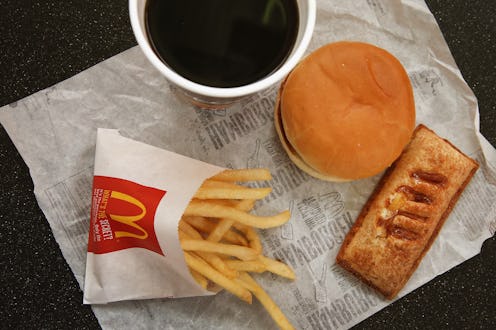News
WHO Says the Free Market Is Making You Fat
The World Health Organization is calling on governments to regulate fast food more intensely in order to curb obesity. A new report from the international public health organization looked at fast food consumption and body mass indexes in 25 high-income countries. Between 1999 and 2008, the average BMI of people in these countries jumped from 25.8 to 26.4 (i.e., slightly overweight to slightly more overweight). At the same time, the number of times people bought fast food in a year rose from 26.61 to 32.76.
The WHO is using this link as evidence that the fast food industry must be thwarted. But while I'm sure Biggie fries and Quarter Pounders aren't helping our collective waistlines, it seems silly to me to single out fast food as the driver of climbing obesity rates. A total pattern of decreasing physical activity and increasing processed food consumption goes hand in hand with rising fast food intake in industrialized countries — there's no evidence any one issue contributes more than another. And studies have shown that people tend to consume more calories at sit-down "family restaurants" than fast food joints.
Still, the WHO report suggests tighter control of the fast food market could combat our tightening belts. It points to countries such as Greece, Italy, and Belgium as models for how to handle the fast food industry. All three countries have stringent fast food regulation, and all three have seen slower-than-average rises in fast food consumption rates.
"Unless governments take steps to regulate their economies, the invisible hand of the market will continue to promote obesity worldwide with disastrous consequences for future public health and economic productivity," said lead researcher Roberto De Vogli.
But previous attempts to regulate people out of "bad" behavior show us that all is naught if you can't change people's attitudes and incentives at the same time. It makes sense that fast food consumption has continued to rise at a time when the economy has been bad and families are increasingly crunched for money and time. Make fast food harder to get and they'll turn to other convenient, cheap food options, not suddenly start drinking kale juice and cooking homemade vegetable soup. People need knowledge and motivation to make lasting change, not just slightly less-convenient cheeseburgers.
